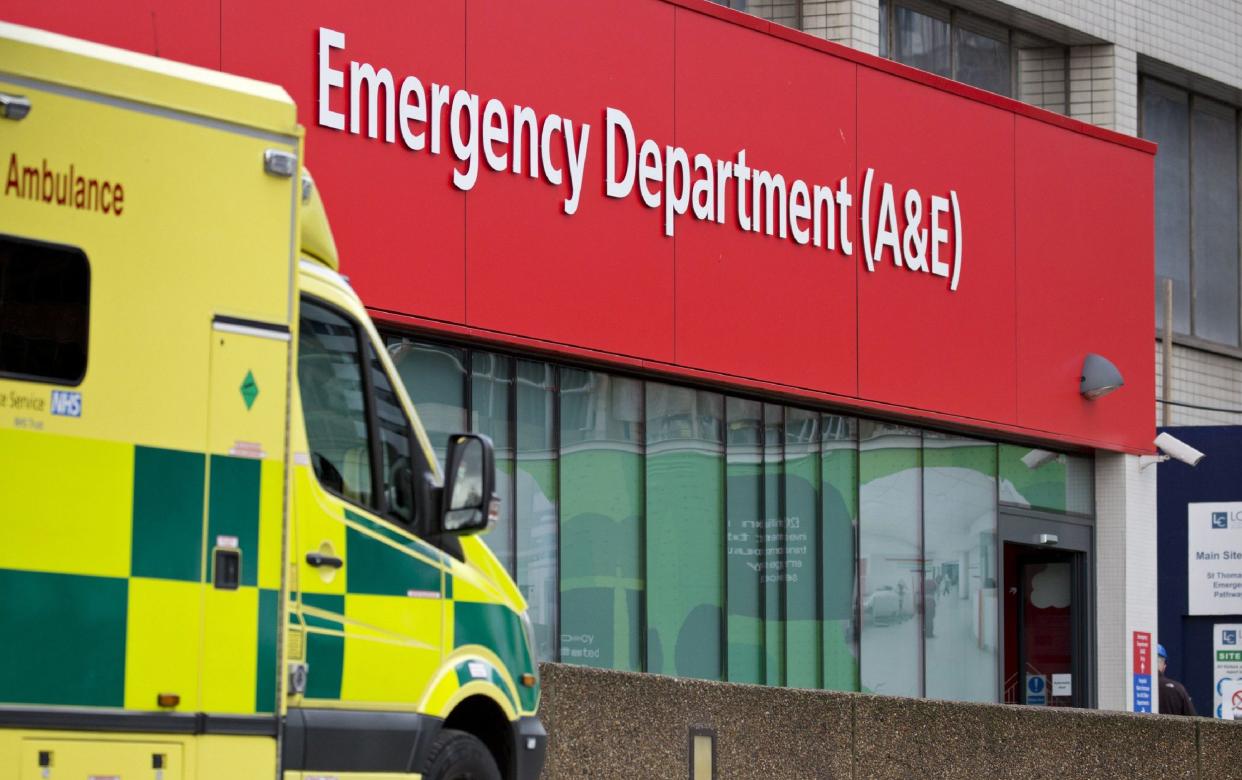Record numbers forced to endure 12-hour waits in A&E

Record numbers of patients have been forced to endure 12-hour waits in Accident and Emergency departments - with cases up one third in a month, official figures show.
NHS statistics show 29,317 people had to wait more than 12 hours in A&E departments in England in July from a decision to admit to actually being admitted.
It comes amid increasing struggles to secure GP appointments, with growing numbers giving up because they find it too difficult, heaping pressures on hospitals.
The NHS figures show 12-hour A&E waits rose 33 per cent in July, with a record spike of 7,283 - up from 22,034 the previous month.
Before the pandemic the figure for the same month was just 450, with a figure of just 22 recorded back in 2015.
It follows claims from the Health Secretary that “a real sprint” is required by Government to avert a winter crisis.
The new figures also show the number of patients seen within four hours reached a record low, with just 71 per cent of patients seen in time, against a target of 95 per cent.
The figures for July show a record 6.7 million on waiting lists, up from 6.6 million. The number waiting at least a year has risen from 331,623 to 355,774 in the last month while the numbers waiting more than eighteen months fell by around 4,000.
July also had some of the worst response times by ambulance services, with waits of 59 minutes for heart attack and stroke victims.
Dr Adrian Boyle, the vice president of the Royal College of Emergency Medicine, said the figures were “worse than we could have ever expected for a summer month”.
“We are seeing the sharp demise of the health service and we are seeing little to no political will to act on or acknowledge the crisis – neither of the leadership candidates seem to recognise the scale of the crisis at hand.
“The crisis is escalating quickly, and health workers are seriously concerned about the quality of care being provided, especially as we exit summer and head into winter,” he said.
It comes amid increasing struggles to access GP appointments, with a fall in the number of qualified family doctors and increasing numbers working part-time.
Earlier this year, the annual GP Patient Survey found 27 per cent of patients had not made an appointment because they found it too difficult - up from 11 per cent in 2021.
In May a study of two A&E departments by the Care Quality Commission (CQC) found more than half of patients had tried another health service before resorting to A&E. In almost half such cases, patients had tried their GP first, the research on 422 patients found.
Wes Streeting, the shadow health secretary, on Thursday accused the Tory leadership candidates of “living in a dangerous fantasy world” and ignoring the biggest crisis in NHS history.
Richard Murray, the chief executive of The King’s Fund said: “Despite record high temperatures outside, today’s NHS figures are more like those of a health service stuck in the depths of a particularly dire winter.”
“Not long after Liz Truss or Rishi Sunak enters 10 Downing Street, winter will really start to bite and without urgent action we can expect ambulance delays to get even longer and more and more people to be stuck waiting in over-crowded A&E departments.”
The data shows six in ten hospital patients who are medically fit for discharge are stuck in hospital, amid a growing crisis in social care.
On average 21,741 patients each day were assessed and found well enough to be sent home. But just over 8,800 were actually discharged, the figures show.
The statistics follow warnings of a major social care crisis, meaning thousands of hospital beds are being used by patients who should actually be given help at home, or sent to a care home.
Hospitals 'grinding to a halt'
It follows warnings from senior NHS leaders that hospitals are “grinding to a halt” because of a growing crisis in social care, with “staggering” numbers of frail and vulnerable people stuck on wards for weeks on end.
The figures also shows cancer waits are now the worst on record, with less than 60 per cent of people now starting treatment within two months of an urgent referral, compared with the target of 85 per cent. It follows leaked data showing that 10,000 NHS patients with suspected cancer have been waiting for treatment or the all-clear for more than three months.
Prof Sir Stephen Powis, NHS national medical director, said: “Today’s figures show the immense pressure our emergency services are under with more of the most serious ambulance callouts than the NHS has ever seen before, at levels more than a third higher than pre-pandemic.
“Recognising the pressure on urgent and emergency care services, we are working on plans to increase capacity and reduce call times ahead of winter in addition to our new contract with St John to provide extra support as needed.”
He urged people to only call 999 for a life-threatening emergency, and to make use of 111 online or pharmacies for other situations.

 Yahoo Movies
Yahoo Movies 
